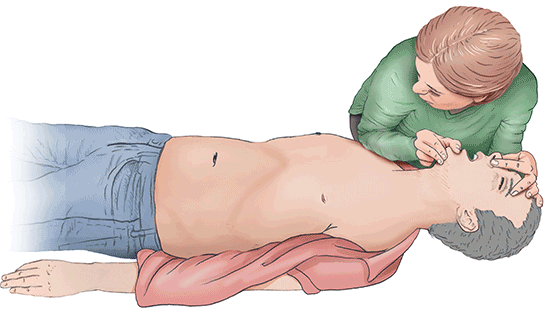Giving mouth-to-mouth resuscitation
Chest compressions are the most important part of resuscitating someone. Also helping them to breathe by providing mouth-to mouth resuscitation is helpful, but not absolutely necessary. But if you feel confident that you can do it, for instance following a first aid course, you should combine chest compressions with mouth-to-mouth resuscitation.
Mouth-to-mouth resuscitation follows a rhythm of 30 to 2: After doing 30 chest compressions, you give the unconscious person two rescue breaths, followed by 30 chest compressions, and so on. The important thing is that the rescue breaths are done quickly. The chest compressions should not be interrupted for more than ten seconds.
This is how to give mouth-to-mouth resuscitation:
- Hold the person's chin with your hand so that their mouth is open. Use your thumb to help keep their mouth open.
- Place your other hand on their forehead and pinch their nose between your index finger and thumb.
- Take a normal breath, cover and seal their open mouth with yours, and blow into their mouth for about one second. Their chest should rise visibly when you breathe into their mouth, and sink again as soon as you move away.

